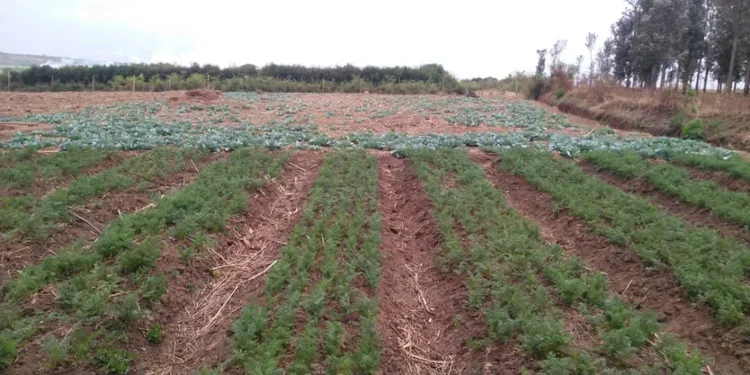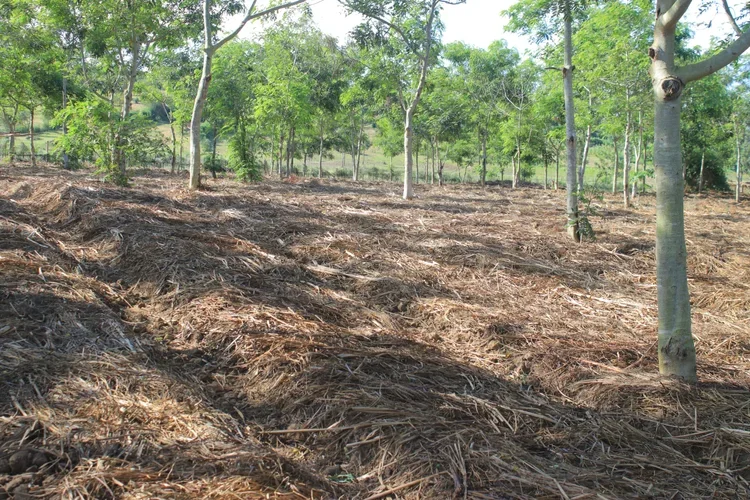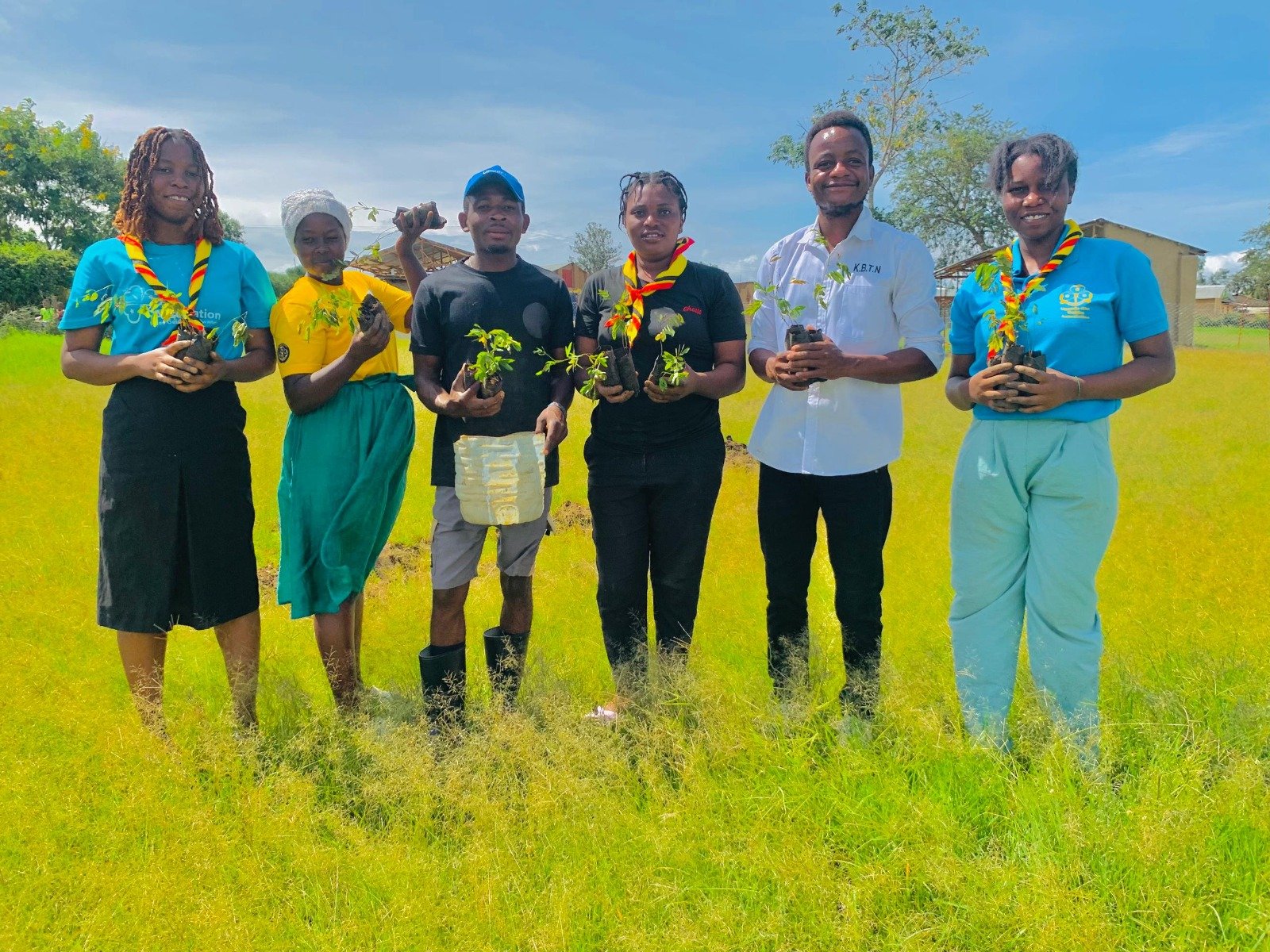Restoring Hope from the Ground Up: Why Soil, Sustainability, and Regenerative Farming Are the Keys to Nakivale's Future
The Nakivale Refugee Settlement in Uganda stands at a critical crossroads. Once buoyed by global humanitarian aid, its resident refugees from over five neighbouring nations are now caught in a deepening food crisis following the withdrawal of major food aid support. In this article, I explore a promising, scalable solution: regenerative agriculture rooted in community-based soil knowledge, sustainable agroforestry and permaculture practices, and self-reliant farming. With over 75% of Nakivale’s refugee population relying on agriculture as their primary economic activity, the soil represents more than land. It means our survival. By transforming Nakivale’s struggling smallholders into empowered stewards of their land, we can unlock food security, resilience, and dignity for over 171,000 displaced individuals.
A Refuge of Resilience in Peril
Tucked into the rolling green hills of southwestern Uganda lies Nakivale Refugee Settlement, a place where courage and hardship collide, where survival is not a given but a daily act of determination. Home to over 171,000 refugees from the Democratic Republic of Congo, Burundi, Somalia, Rwanda, and South Sudan, Nakivale is among Africa’s oldest and largest refugee communities. For decades, this settlement has relied heavily on humanitarian food assistance, with agencies such as the UN World Food Programme (WFP) providing lifelines to families who have lost everything. That assistance has now been drastically reduced. In the wake of major donor withdrawals, particularly from the United States, over 65% of Nakivale's refugees no longer receive any food aid. What happens when the safety net is gone? Hunger returns not as a statistic, but as a silent crisis creeping into homes, classrooms, and clinics. Parents go to bed unsure of what tomorrow holds for their children. Youth drop out of school. Health weakens. Dreams fade.
But in the face of this bleak outlook, an alternative has begun to take root in farming, not just as tradition, but as a last hope for economic and nutritional survival. With more than 75% of Nakivale’s population depending on agriculture as their main livelihood source, restoring the productivity of the soil is not an option; it is a necessity.
From Surviving to Thriving: Why Regenerative Agriculture is the Answer
We are not proposing charity. We are proposing to create regenerative opportunities.
This crisis calls for a strategic intervention, one that is scientific, sustainable, and community-driven. Regenerative agriculture, supported by accessible soil diagnostics and localized education, offers a clear and proven path forward.
By introducing a Community Soil & Sustainability Initiative (CSSI), we can:
Conduct comprehensive soil tests for pH, nitrogen, phosphorus, and organic matter,
Build a peer-to-peer farmer training model using existing refugee-led cooperatives and demonstration plots,
Deploy low-cost regenerative techniques such as composting, intercropping, cover cropping, mulching, and water harvesting,
Restore degraded land while increasing yield, biodiversity, and climate resilience, and
Create a knowledge-sharing ecosystem that empowers refugees to not just survive, but to lead.
These are not theoretical solutions. These are time-tested techniques already proven effective in communities across sub-Saharan Africa. In Nakivale, where agriculture remains the backbone of the economy and the hope for over 75% of families, this model can mean the difference between hunger and self-sufficiency.
Demonstration Gardens: Where Knowledge Takes Root
Central to this initiative is the development of community demonstration gardens and practical training hubs that show refugee farmers how regenerative techniques actually work in their environment. These are not just gardens. They are living classrooms, training hubs, and community catalysts. These gardens will serve as:
Hands-on learning centers where refugee farmers learn by doing,
Hands-on labs for testing agroforestry, crop rotation, and organic techniques,
Gathering spaces for community-led experimentation, seed sharing, and planning, and
Evidence of success; visible proof that these techniques work, even in challenging conditions.
Each of Nakivale’s three administrative zones, Base Camp, Juru, and Rubondo, will have at least 3 hectares dedicated to demonstration gardens. Here, refugee farmers will see what works. They’ll practice what they learn. And they’ll carry that knowledge back to their own plots, multiplying the impact across the entire settlement. It takes only 800 USD to fully equip and implement regenerative techniques on one hectare of community demonstration garden, including soil testing, compost systems, training sessions, water conservation, and tools. That’s $800 to transform barren land into a productive, sustainable, and empowering field of hope. Imagine what just one hectare can do for a zone. Now imagine nine hectares across Nakivale.
This is not just affordable, it's transformational.
A Scalable Model with Global Implications
Nakivale can serve as a living laboratory for scalable refugee-led regenerative agriculture. By combining science, training, and local agency, we can build a model with the power to be replicated in other refugee settings from Kakuma in Kenya to Dadaab, Zaatari, and beyond. Moreover, regenerative agriculture supports multiple Sustainable Development Goals (SDGs), including: SDG 2 (Zero Hunger), SDG 13 (Climate Action), SDG 15 (Life on Land), and SDG 17 (Partnerships for the Goals).
This initiative is shovel-ready and highly cost-effective. We do not need multi-million-dollar infrastructure. We need:
Soil testing kits,
Community trainers,
Seeds and garden tools & equipment, and
Partnerships with NGOs, universities, and impact investors
A Call to Action
We are actively seeking partners, funders, and change makers to join this urgent mission. We welcome:
Soil scientists to help us interpret test results and train community leaders,
Higher learning institutions interested in research collaborations and knowledge transfer,
Philanthropic foundations committed to food justice, women’s empowerment, and climate-smart agriculture,
Ag-tech companies to supply kits, tools, or innovations suited for refugee environments,
Permaculture experts and regenerative agriculture educators, and
Donors and development agencies that are ready to fund impact at the grassroots level.
Nakivale’s People Are Not Helpless. They Are Hungry for Opportunity. In every refugee farmer I’ve met in Nakivale, I have seen resilience, dignity, and readiness. These are people who want to work their land not just for food, but for their future. They don’t want aid. They want agency. They don’t ask for pity. They ask for a pathway forward. And with Agriculture remaining their mainstay economically and nutritionally, regenerative farming is no longer an option. It is the only viable hope.
They are ready to grow; one seed, one skill, one harvest at a time.
A Field of Hope, Waiting to Be Tended
What we shall do in Nakivale in the next 12 months will shape not only the food security of over 171000 displaced individuals but the trajectory of refugee resilience globally.
We stand at a moment where we can shift from dependence to dignity, from extraction to regeneration, from despair to action.
Will you help us turn this vision into reality?
Contact
To collaborate, fund, or co-design a regenerative agriculture pilot in Nakivale, please reach out:
Email: Samuelombeni073@gmail.com
Whatsapp:+256761027848
Together, let’s grow something powerful.
About the Author
Samuel Ombeni, Refugee Youth Advocate for Sustainable Development and Humanitarian Agriculture.
Samuel Ombeni is not just a young refugee he is a visionary changemaker rooted in resilience and driven by purpose. With a deep passion for environmental stewardship and a firm belief in the power of regenerative agriculture, He is committed to transforming crisis into opportunity. Through his work on sustainable development, he empowers communities in Nakivale Refugee Settlement to reclaim food sovereignty, rebuild degraded soils, and restore dignity from the ground up. As a tireless advocate for justice and sustainability, Samuel brings both lived experience and bold solutions to one of the most pressing challenges of our time: how to feed, heal, and sustain displaced communities through ecological resilience and agricultural innovation.







